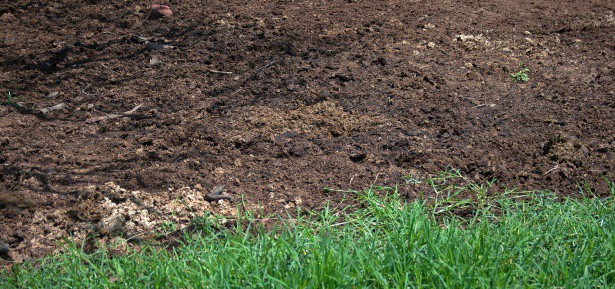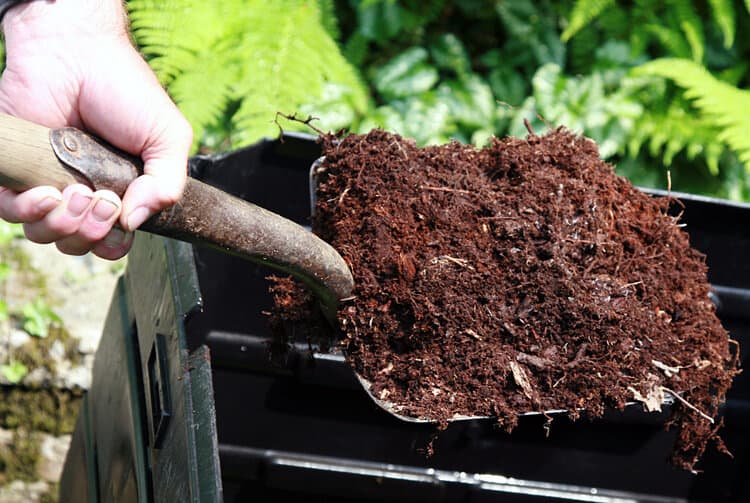8 Compost Facts That’ll Change Your Perspective

You know that composting has many advantages and is a great way to help your garden grow, but do you also know about how it works? Composting is the process of combining organic matter with soil and water.
This mixture can then be turned into rich soil for plants to thrive in.
But there’s so much more to compost than simply throwing in some leaves on top of your dirt. We’ll share 8 composting facts so you’ll never look at it the same again!
Compost fact 1: Composting is a natural process that has been around for centuries
The ancient Egyptians composted their organic waste and used the residues that accumulated on crops in their agricultural system.
Composting was one of the mechanisms farmers used in order to feed their animals and maintain soil fertility without resorting to using expensive fertilizers.
In ancient China, farmers collected organic materials from their fields and mixed them with animal dung.
The mixture was then buried to create compost, which improved soil quality and encouraged a cycle of plant growth, harvest, killing off weeds without requiring the use of chemical fertilizers or herbicides needed with other methods of farming.
Compost fact 2: Composting reduces greenhouse gas emissions
Composting reduces greenhouse gas emissions because it is a closed system and carbon dioxide is released from the compost.
Additionally, landfills emit methane gas which has 20 times the global warming potential than CO2 does. If food waste were composted, one-quarter of organic waste in landfills would be eliminated thereby reducing greenhouse gas emissions significantly.
Composting is not only a greenway but also an affordable way to reduce your carbon footprint and methane emissions that will make the world cleaner.
Compost fact 3: You can compost just about anything
There are a number of misconceptions about what can and cannot be composted, but the truth is that you can compost just about anything if it’s organic – even the animal-based materials!
If you have a compost pile of animal poop mixed in with your yard waste, this will not break down as quickly as an all-organic mixture.
This is because microbes will need longer to break down the proteins in animal waste from the large amounts of nitrogenous fertilizers.
For this reason, make sure to separate food scraps like fruit peels and coffee grounds from animal manure if they’re mixed together on your property, before adding them into the finished compost piles or bins.
Compost fact 4: You don’t need a backyard or garden to start composting

What seems to be a myth is that you need to have either a lot of space or a large backyard in order to start composting. In reality, 3 square feet of space should be plenty for the creation of your compost pile.
A safe and effective method for people who lack yard space is what many call vermicomposting.
With this process, you use the natural activity of earthworms as composters to eat your organic waste compost material and produce nutrient-rich worm castings which then serve as excellent soil amendments.
A single worm can eat its body weight every single day – so those worms will make short work of your kitchen leftovers every day!
Compost fact 5: It can take as little as 3 months to make compost
Compost is made by a natural process in which aerobic decomposer organisms like bacteria or germs break down organic matter.
This is done more quickly in warmer temperatures, which explains why warm summer months are such a good time for gardeners to start turning dead leaves into great soil.
The more diverse your compost pile is the faster-composting process. If you have different compost materials like food scraps, vegetable waste, tea bags, grass clippings, fireplace ashes, wood chips, or yard trimmings your compost can decompose in as little as 3 months.
In fact, many cities in the United States are going green by providing free spaces for citizens to use to compost their unwanted material and contribute to the effort of re-growing sustainable energy sources.
Compost fact 6: It’s easy to start your own compost pile!

Composting can occur in a backyard, a communal collection site, or even on the roof or balcony of an apartment building. Some composters create their own compost heap – you just need some brown material to use as the base of the compost heap.
It’s easy to start your own compost heap.
Simply line a bin with things like newspaper and layer in shredded or whole leaves, grass clippings, coffee grounds, chopped-up fruit scraps from the kitchen sink, and any other vegetable waste or eggshells that can also be mixed in.
A healthy compost pile should have at least three different layers – the bottom layer should contain brown materials like leaves and straw; the middle layer should consist of high-nitrogen green materials like fresh grass clippings or food scraps, and the top layer should include carbon-rich things like wood chips or sawdust.
Compost fact 7: Composting is one of the best ways to go green
Composting just might be one of the best things we can do for our planet!
You are essentially doing something great for yourself and everyone around you by composting. Composting reduces the need for chemical fertilizers, which are harmful to humans and the environment.
The modern home produces a lot of food waste, which means that our homes bear a large part of the responsibility when it comes to aggravating climate change. That’s why many environmental experts hail composting – one of humankind’s oldest recycling techniques – as one of our best weapons in the fight against global warming.
The EPA estimates that if American households were to divert just 5% more waste from landfills, we could save energy equivalent to 30 million barrels of oil each year.
Compost fact 8: You can make compost from human waste

You can make compost from human waste with the help of a composting toilet. The toilet separates fluids that need to be drained and solids that are to be separated for collection.
If you’re a little wary about this, don’t worry! Make sure you pick out an NSF-certified one.
What is left is mostly water and some valuable nutrients that can feed plants. This process reduces human pathogens in wastewater making it a safe impact on our environment.
And in case this article has created some questions for you, read on to learn more about how composting toilets work!

